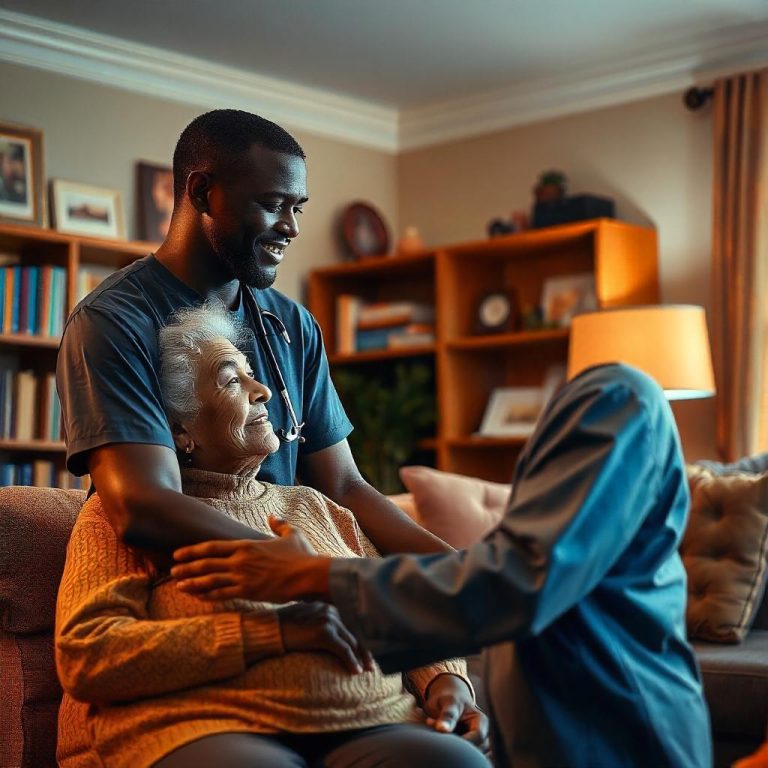As seniors age, many experience loneliness and isolation due to the loss of loved ones, declining mobility, or living alone. Senior companion programs are designed to address these challenges by providing emotional support, companionship, and practical assistance to elderly individuals. These programs not only enrich the lives of seniors but also empower volunteers or professional caregivers who form lasting bonds with those they serve.
What Are Senior Companion Programs?
Senior companion programs pair elderly individuals with trained companions, often volunteers or professional caregivers, who provide emotional and social support. These companions engage seniors in meaningful activities, assist with everyday tasks, and encourage participation in the community. The focus is on fostering relationships that enhance emotional well-being, independence, and quality of life.
Core Features of Senior Companion Programs
- Emotional Support and Friendship
Companions provide a listening ear and engage seniors in conversation, helping to alleviate feelings of loneliness and depression. By building a rapport, they create a sense of belonging and companionship. - Assistance with Daily Activities
While companions are not medical professionals, they often help seniors with non-medical tasks such as grocery shopping, light housekeeping, meal preparation, and running errands. This support enables seniors to maintain independence. - Encouraging Physical Activity
Companions often promote mobility by encouraging seniors to take walks, engage in light exercise, or participate in physical activities suited to their abilities. This not only improves physical health but also boosts mental well-being. - Facilitating Social Engagement
Many senior companion programs focus on reintroducing elderly individuals to community activities. Companions may accompany seniors to social events, religious services, or recreational outings, helping them stay connected to their community. - Respite for Family Caregivers
Family caregivers often experience burnout from the demands of looking after elderly loved ones. Senior companions offer relief by stepping in to provide care and attention, allowing caregivers to rest and recharge. - Safety and Monitoring
Companions can act as an extra set of eyes and ears, monitoring the senior’s well-being and alerting family members or healthcare providers to any concerning changes in health or behavior.
Benefits of Senior Companion Programs
- Reduced Loneliness and Depression
Loneliness is a significant issue for many seniors, particularly those living alone. Regular interaction with a companion can alleviate these feelings, improve mood, and reduce the risk of depression. - Improved Mental and Physical Health
Engaging in conversations, hobbies, and activities with a companion can stimulate cognitive function and encourage a more active lifestyle. This, in turn, reduces the risk of health issues such as heart disease, arthritis, or memory decline. - Enhanced Independence
With assistance in daily tasks and encouragement to participate in activities, seniors often regain confidence in their ability to manage their lives. This sense of independence contributes to overall happiness and self-worth. - Stronger Family Relationships
By alleviating some of the caregiving burden, senior companion programs allow family members to focus on nurturing their relationship with the senior rather than solely attending to their needs. - Community Connection
Companions help seniors stay connected to the community, which can reignite their interest in social activities and foster new friendships. This connection combats isolation and builds a sense of belonging.
Who Can Benefit from Senior Companion Programs?
Senior companion programs are ideal for older adults who:
- Live alone and have limited social interaction.
- Experience mild physical or cognitive limitations but do not require extensive medical care.
- Feel isolated or lonely due to the loss of family or friends.
- Need assistance with non-medical tasks such as shopping, errands, or attending appointments.
- Desire companionship and engagement in meaningful activities.
Family caregivers can also benefit, as these programs provide much-needed respite, allowing them to recharge while ensuring their loved ones are cared for.
Types of Senior Companion Programs
- Volunteer-Based Programs
Many community organizations and nonprofits offer senior companion services through trained volunteers. These programs are often free or low-cost and rely on the goodwill of individuals dedicated to serving their communities. - Professional Companion Services
Some programs employ trained caregivers who provide personalized companionship and assistance for a fee. These services often include additional benefits like specialized training in dementia care or mobility assistance. - Government-Funded Initiatives
In some regions, government-sponsored programs connect seniors with companions as part of elder care services. These initiatives may focus on low-income seniors or those living in underserved areas. - Faith-Based Organizations
Churches, temples, and other faith-based institutions often run senior companion programs that combine emotional support with spiritual care, helping seniors find comfort and companionship through shared values. - Intergenerational Programs
These programs connect seniors with younger volunteers, such as students or young professionals. The exchange of life experiences and perspectives enriches both generations, fostering mutual understanding and respect.
How to Access Senior Companion Programs
Seniors or their families can explore senior companion programs through several avenues:
- Local Community Centers: Many senior centers and recreational facilities offer companion services or can provide referrals.
- Nonprofit Organizations: Groups such as Meals on Wheels or the National Senior Corps often run volunteer-based companion programs.
- Healthcare Providers: Hospitals and clinics may have connections to professional senior companion services.
- Online Directories: Websites and apps specializing in elder care often include listings for senior companion services.
When selecting a companion program, it’s essential to consider the senior’s specific needs and preferences, the qualifications of the companions, and the program’s cost or availability of financial assistance.






